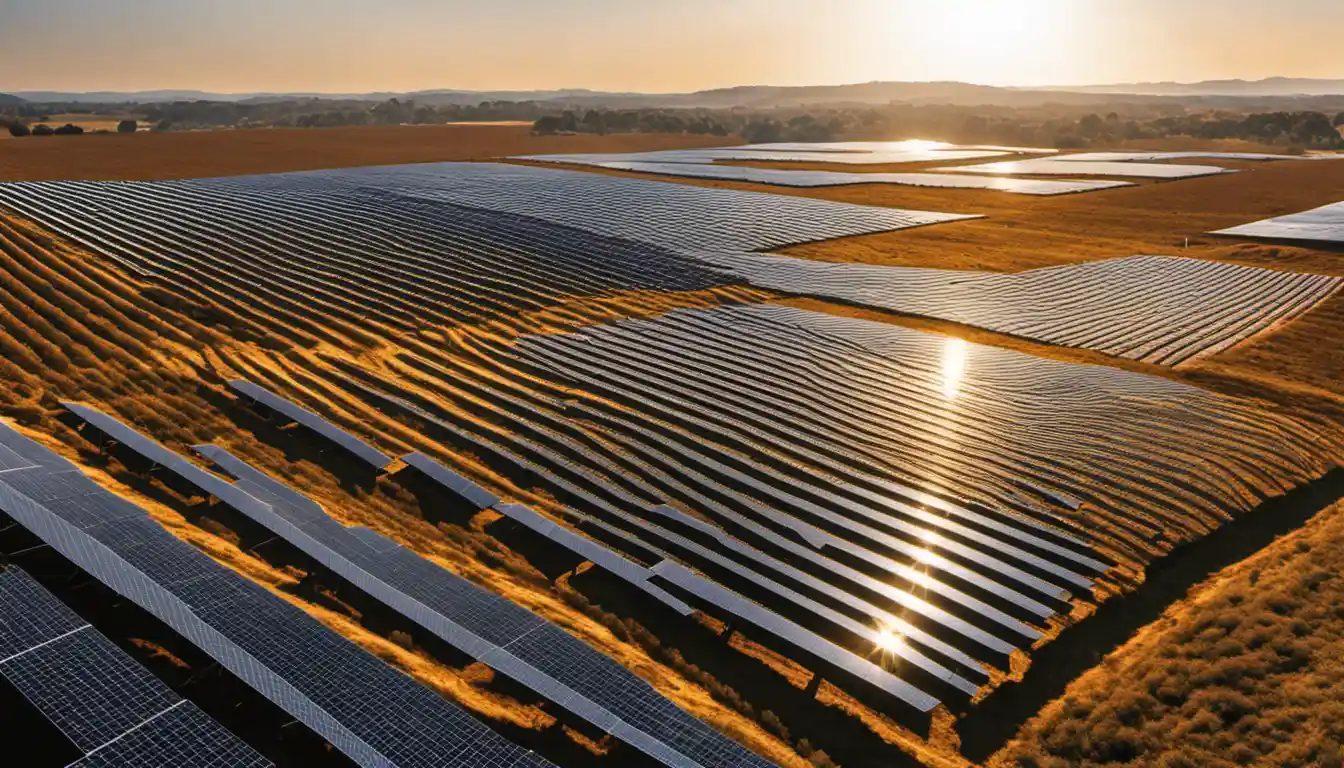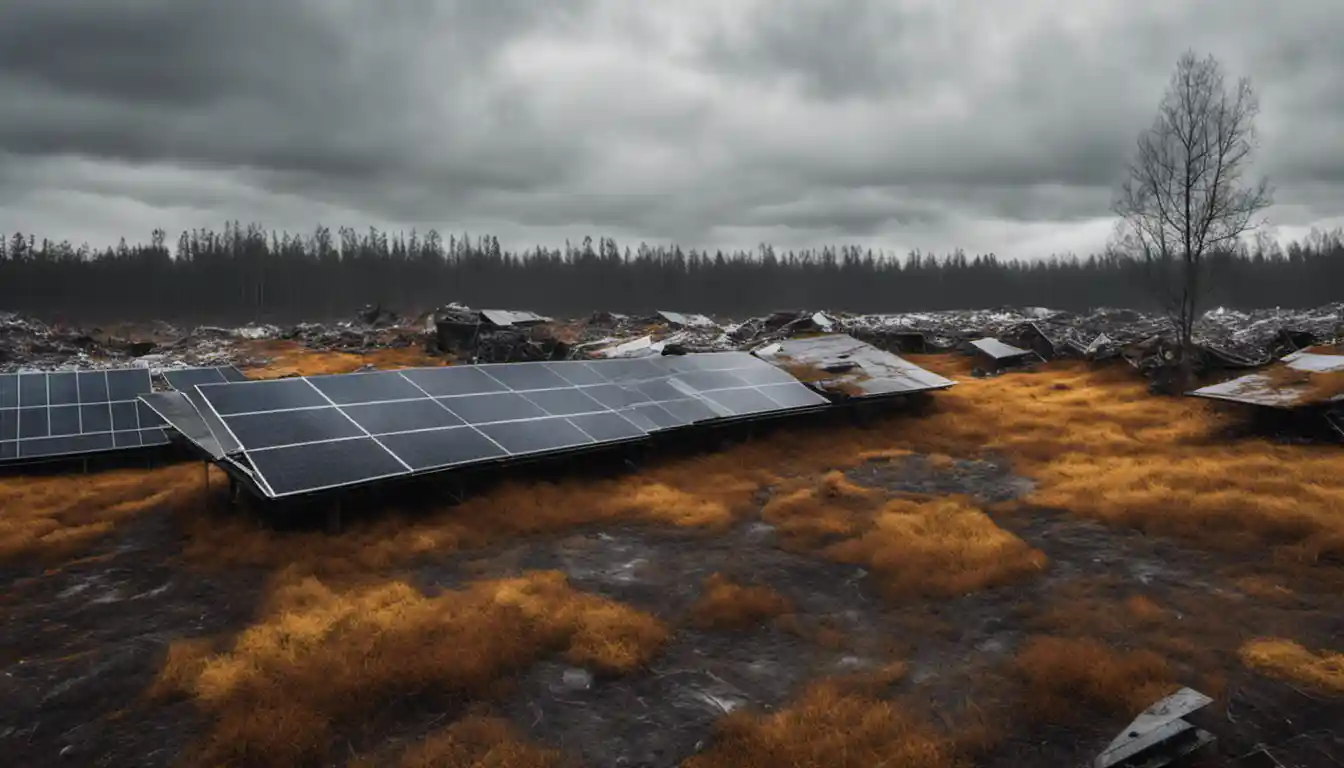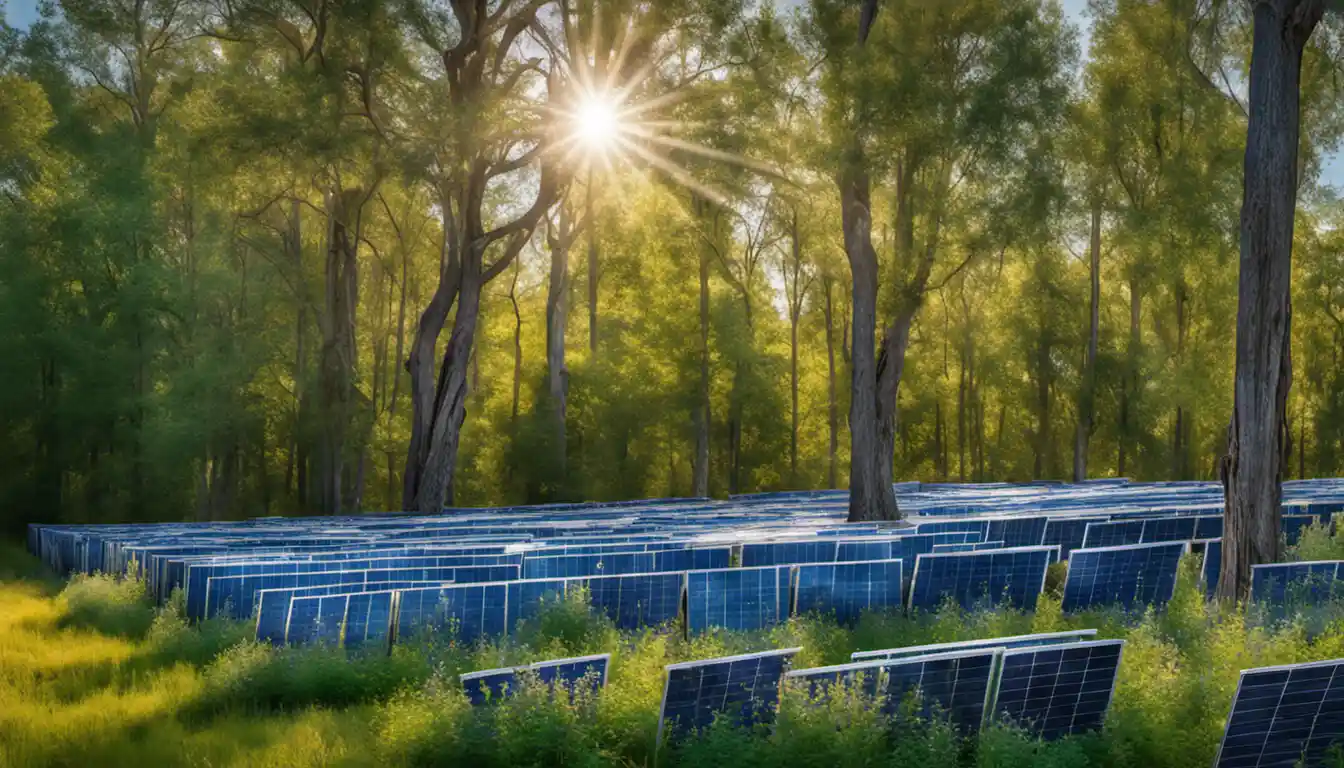Introduction
Solar panels can be recycled to recover valuable materials like glass and silver. They are generally sent to an e-waste recycling facility that employs a special process to safely and efficiently extract the reusable materials, while safely disposing of waste. Some manufacturers will have take-back programs to encourage the recycling of their panels.
Background on Solar Panels
See also: Are Solar Panels Hazardous Waste? Uncovering the Facts and Myths
Brief Description of Solar Panels
Solar panels, or photovoltaic (PV) modules, are designed to generate electricity from sunlight, a renewable resource. As a solar energy veteran, my two decades of experience have led me to witness firsthand how solar panel designs have evolved to become more efficient, cost-effective, and environmentally friendly.
See also: Are Solar Panels Recyclable? Uncovering the Truth about Solar Waste Management
Types of Solar Panels
See also: Used Solar Panels (Cost Solutions/Problems)
Silicon Solar (mono- and poly-crystalline)
The bulk of the solar panels used today are made of silicon, in either monocrystalline or polycrystalline form. Monocrystalline solar panels are made out of a single crystal structure and are usually black, while polycrystalline solar panels consist of melted silicon fragments and are usually blue.
Thin-Film Solar
Thin-film solar panels, as the name suggests, are made with very thin layers of a semiconducting material. They are lighter and less expensive than silicon-based solar panels but are also less efficient.
The Lifecycle of a Solar Panel
Expected Lifespan of a Solar Panel
According to most manufacturers, the average lifespan of a solar panel is about 25-30 years. But don’t mistake this for the time it takes for them to stop working – this is how long solar panels last at their most efficient. After this point, their ability to convert sunlight into electricity diminishes, but they often continue producing power for many years after.
When to Consider Solar Panel Disposal

So, when do you start considering how to dispose of solar panels? Once your solar panel’s performance starts to decline significantly, it’s time to think about disposing or recycling it.
Understanding Solar Panel Waste
Are Solar Panels Considered Hazardous Waste?
Used panels are categorized as hazardous due to the small amounts of heavy metals they contain. If not handled correctly during the disposal process, these materials could end up leaching into the environment.
Harmful Components in a Solar Panel
Solar panels contain metals like lead, which can be harmful if released into the environment. They also contain valuable materials like silver and aluminum, which can be recovered, recycled, and used in the production of new products.
Regulation of Solar Panel Disposal
Overview of Hazardous Waste Regulations
In many regions, including the European Union and some U.S. states, solar panel disposal is regulated under existing e-waste and hazardous waste legislation. These laws mandate safe disposal practices to prevent health and environmental hazards.
Current State Solar Panel End-of-Life Policies
End-of-life policies for solar panels vary considerably from one region to another. Some U.S. states have specific regulations for solar panel disposal, requiring manufacturers to take back and recycle panels at the end of their life.
Role of Federal Agencies in Solar Panel Disposal
Federal agencies like the Environmental Protection Agency (EPA) set and enforce regulations governing the disposal of hazardous materials, including solar panels. The EPA has guidelines on handling and disposing of electronic waste and hazardous materials.
How to Dispose of Solar Panels

Home Owner’s Guide to Solar Panel Disposal
So, how does a homeowner go about disposing of solar panels? It starts with contacting the manufacturer or your solar power system provider to see if they have a take-back program. You can also contact local e-waste recyclers to see if they accept solar panels.
How Businesses Can Effectively Dispose of Solar Panels
Businesses need to ensure they’re following local and federal regulations as businesses have a legal responsibility to dispose of equipment properly. It’s best to start with their system installer or manufacturer to discuss take-back options or contact a commercial e-waste recycler.
Solar Panel Recycling
Overview of Solar Panel Recycling
Recycling allows us to recover valuable materials from used solar panels, reducing the demand for raw resources and the environmental impact of mining and production. This is a key part of the solar panel disposal problem – making sure we’re effectively using the resources we have.
The Recycling Process Explained
The solar panel recycling process is a multi-step endeavor. First, the frames and metal parts are removed and recycled. Then, the glass and plastic components are separated, with the glass recycled into new products. Finally, the cells themselves are treated to recover valuable materials such as silver and silicon.
Where to Recycle or Dispose of Solar Panels
There are specialists recycling facilities that can process solar panel waste and recover valuable materials. In some states, you might have municipal waste facilities that take electronic waste, including solar panels.
Solar Panel Reuse
Opportunities for Repurposing Old Solar Panels

If a panel isn’t up for standard use but is still functional, there are a few opportunities. Uses such as solar art installations or solar-powered heaters are just some of the ways old panels can be reused.
Options for Solar Panel Disposal in United States
Glass Recycling Facilities
Glass from solar panels can be recycled at standard glass recycling facilities, but the process of obtaining the glass from the panels should be done by professionals due to the other components inside the panels.
The Future of Solar Panel Disposal and Recycling
Innovations in Solar Panel Recycling Technologies
Recent innovations are making solar panel recycling more efficient, such as using chemicals or bacteria to recover elements from the cells.
Upcoming Policies and Regulations on Solar Panel Disposal
As solar panels become more common, more policies and regulations will likely be introduced to control their disposal. Some states are even considering “solar panel disposal regulations” that would require manufacturers to take back used panels for recycling
Improving Solar Panel Designs for Easy Disposal and Recycling
Future solar panels are expected to be designed not just for efficiency and cost-effectiveness, but also for ease of recycling at the end of their lifecycle.
Conclusion to Solar Panel Disposal
Solar panel disposal won’t be an insurmountable problem if we plan for it now. As consumers, we have a responsibility to understand how much does it cost to remove solar panels, and their eventual disposal or recycling cost is part of that equation. By focusing today on developing effective recycling methods and regulations, we can help make solar power a truly sustainable long term resource.



